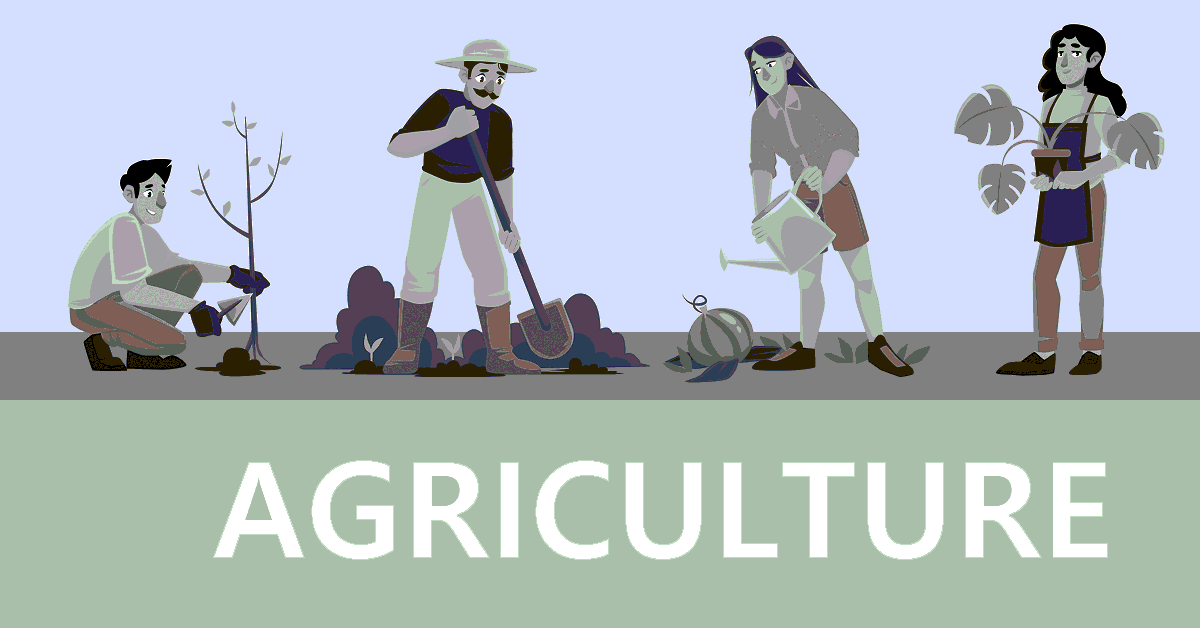
Agriculture and Deforestation: Understanding the Impact of Current Practices
Deforestation is a pressing issue worldwide, with devastating consequences for the environment and communities. Agricultural practices are among the main drivers of deforestation, contributing to around 80% of global forest loss. Learn about the causes and effects of deforestation in agriculture, and discover sustainable alternatives to reduce environmental impact. This article provides insights into the impact of current agricultural practices on deforestation, the consequences for the environment and communities, and potential alternatives to reduce deforestation while ensuring sustainable agriculture.
Current agricultural practices that contribute to deforestation
Agricultural practices that contribute to deforestation include land clearing, slash-and-burn farming, and monoculture. Land clearing involves removing trees and other vegetation to create space for crops, pasture, or other land uses. This practice leads to soil degradation, biodiversity loss, and increased greenhouse gas emissions. Slash-and-burn farming is a technique where farmers cut down trees and burn them to create fertile land for crops. This practice not only destroys trees but also releases large amounts of carbon dioxide into the atmosphere, contributing to global warming. Monoculture, or the practice of planting a single crop in large areas, also contributes to deforestation by promoting the expansion of agriculture into new areas.
The impact of deforestation on the environment, climate, and communities
Deforestation has a range of impacts on the environment, climate, and communities. Trees absorb carbon dioxide from the atmosphere and store it in their biomass, making them a crucial component in the fight against climate change. Deforestation reduces the number of trees, leading to increased levels of carbon dioxide in the atmosphere, which contributes to global warming. Deforestation also reduces biodiversity, which can lead to the extinction of species and disrupt ecosystems' functioning. Forests are home to many communities worldwide, and deforestation can lead to the loss of livelihoods and displacement.
Alternatives to unsustainable agriculture that can reduce deforestation
Sustainable agriculture offers alternatives to unsustainable practices that contribute to deforestation. Agroforestry, for example, involves planting trees alongside crops, promoting reforestation and biodiversity while maintaining crop yields. This approach provides multiple benefits, such as improving soil quality, reducing erosion, and mitigating climate change. Other practices include organic farming, integrated pest management, and crop rotation. These practices reduce the use of chemicals and promote soil health, leading to sustainable agriculture and reduced deforestation.
Government policies and regulations related to deforestation and agriculture
Many governments worldwide have implemented policies and regulations to reduce deforestation in agriculture. For example, Norway and Brazil launched a joint initiative to reduce deforestation in the Amazon rainforest by providing financial incentives for sustainable practices and penalties for illegal land clearing. Other governments have implemented sustainable certification schemes, such as the Forest Stewardship Council (FSC), to ensure that wood and paper products come from sustainably managed forests. These policies and regulations aim to promote sustainable agriculture while reducing deforestation, ensuring that communities and the environment benefit from agricultural practices.
Success stories of sustainable agriculture that promote reforestation and biodiversity
Sustainable agriculture practices have been successful in promoting reforestation and biodiversity while maintaining crop yields. A case study in Costa Rica showed that switching from traditional agriculture to agroforestry systems reduced deforestation and increased biodiversity while maintaining crop yields. Similarly, a study in Ethiopia showed that implementing sustainable agricultural practices, such as conservation agriculture and agroforestry, led to increased tree cover and improved soil quality. These success stories demonstrate that sustainable agriculture can offer a viable alternative to unsustainable practices that contribute to deforestation.
Conclusion
Deforestation is a pressing issue worldwide, with agricultural practices being a significant driver. This article has highlighted the causes and effects of deforestation in agriculture, provided insights into sustainable alternatives, and explored government policies and success stories of sustainable agriculture that promote reforestation and biodiversity. Sustainable agriculture practices, such as agro forestry, intercropping, and reduced tillage, can reduce the environmental impact of agriculture while maintaining or even improving crop yields. Furthermore, sustainable agriculture can promote reforestation and biodiversity, providing a range of benefits for both the environment and local communities.
Governments worldwide have implemented policies and regulations to reduce deforestation in agriculture. For example, Norway has pledged to reduce deforestation-related greenhouse gas emissions, investing heavily in sustainable agriculture practices and providing financial incentives for sustainable farming. In Brazil, the government has introduced a system to track and penalize illegal deforestation, while promoting sustainable agriculture practices and supporting smallholder farmers.
Success stories of sustainable agriculture practices that promote reforestation and biodiversity are also emerging worldwide. In Costa Rica, a case study showed that switching from traditional agriculture to agroforestry systems reduced deforestation and increased biodiversity while maintaining crop yields. In Indonesia, a program called "community-based forest management" empowers local communities to manage forests sustainably, leading to reduced deforestation and increased biodiversity.
Agricultural Science

